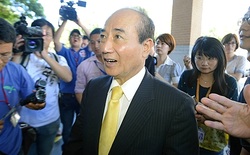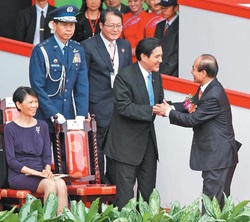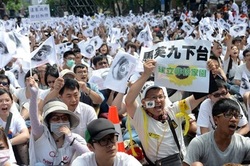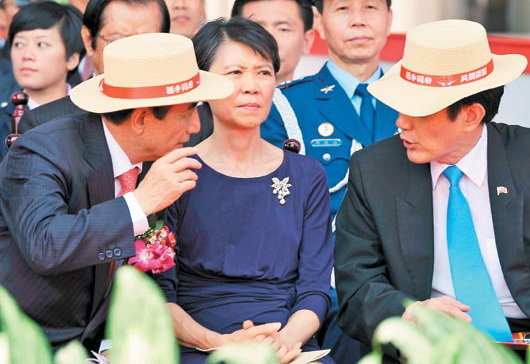
The courts in Taiwan have been understandably reluctant to intervene in politically charged cases in recent years, as this manuscript by Wei-tseng Chen and Chia-hsin Hsu argues. Some speculation on my part here, but because the lower court rulings temporarily stopped Wang's expulsion, the Supreme Court would have had to overturn those decisions for the KMT action to take effect. The path of least resistance for the Court in this instance is to sustain the injunction and allow the legal process to play out at the district court. That appears to be what the KMT expected--hence the decision not to appeal.
So, Wang lives to fight another day, holding onto not only his party list seat but also the speakership--a remarkable turn of events given just how dire his political future looked a month ago. The case at the district court probably won't be decided before the next legislative election, at which point Wang can run for, and probably win, a district seat in his base of Kaohsiung County.

In the end, Ma and Wang played nice for the cameras and struck conciliatory tones toward one another in their respective speeches. Another sign of reconciliation, perhaps: both wore the same silly hats. The shot below is tailor-made for a caption contest:

There are a couple of intriguing questions here. One, is this apparent rise in protest real, or are the numbers and demands of street demonstrators not much different from a decade ago? And two, if it is real, what is driving it? To what degree can this upswing be attributed to the fact that the DPP is completely shut out of power, versus a "supply-side" explanation focusing on rising grievances--housing prices, nuclear power, stagnant wages, perceived government corruption, and so forth? I suspect that unified KMT control has shut many channels for social advocacy groups to have real influence on policy-making, although the ultimate success of these groups under the Chen Shui-bian administration was also limited (gated article).
Unfortunately, I haven't been able to locate much in the way of recent academic work on social movements in Taiwan that speaks to these questions, or even that describes these groups in much detail. (For instance, it would be really helpful to know more about the origins of some of the protests, such as the rather odd Citizen 1985 movement described here.) An opportunity for some future researchers, perhaps...

 RSS Feed
RSS Feed
